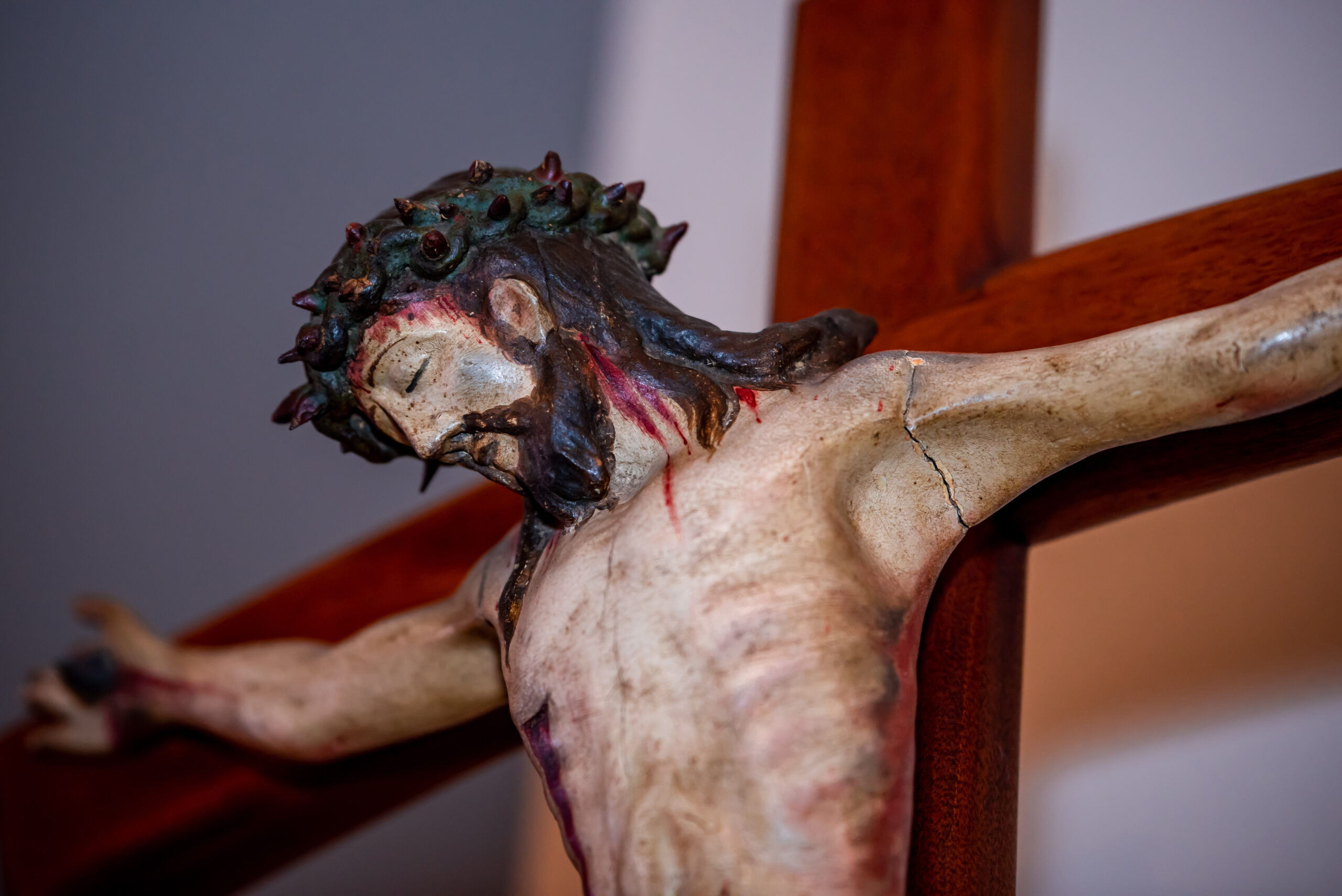
NOTE: On the Catholic liturgical calendar, the month of July is dedicated to the Precious Blood of Jesus.
*****
As a former Pentecostal pastor, I’ll always look back with deep gratitude on the countless times we lifted our voices in worship, singing, “Oh, the blood of Jesus, it washes white as snow!” The theme of Christ’s Blood was everywhere—songs, sermons, altar calls, and prayers for deliverance. When I entered the Catholic Church in 2019, I discovered something beautiful: this same devotion to the Blood of Jesus, so central to Pentecostal faith, also pulses at the heart of Catholic life and worship, especially in the liturgy I now call home. It’s not a dividing line—it’s a bridge uniting us in the love of Jesus who “has freed us from our sins by his blood” (Revelation 1:5).
Across both traditions, the power of the Blood of Jesus is grounded in the Word of God. Scripture proclaims that “the blood of Jesus his Son cleanses us from all sin” (1 John 1:7), that “without the shedding of blood there is no forgiveness of sins” (Hebrews 9:22), and that the faithful “have conquered [the accuser] by the blood of the Lamb” (Revelation 12:11). Whether in a Pentecostal prayer meeting or a Catholic Mass, believers cling to the same promise: the Blood of Jesus saves, cleanses, protects, and gives life. It’s not merely symbolic—it’s the very substance of our hope, poured out for us on Calvary.
In the Pentecostal world I once called home, the Blood of Jesus was not a theological abstraction—it was a living force in our worship, prayers, and daily walk. We sang it often: “Nothing but the Blood,” “Power in the Blood,” “The Blood Will Never Lose Its Power.” When someone struggled with temptation or oppression, we cried out, “We plead the Blood of Jesus!” During altar calls, I heard broken men and women pray, “Lord, cover me with your Blood!” It was raw and real—a deep conviction that Christ’s Blood was our covering, cleansing, and only hope. That devotion never left me—it found new depth in the Catholic Church.
In Catholicism, I found that same reverence—expressed differently, but burning just as brightly. At the center of Catholic life is the Eucharist, where bread and wine become the true Body and Blood of Christ. This isn’t symbolic. Catholics believe that in every Mass, we are brought to the very foot of Calvary, partaking of the very Blood that was shed for us in the Eucharist. As the Catechism teaches, “The Eucharist is thus a sacrifice because it re-presents (makes present) the sacrifice of the cross… and applies its fruit” (CCC 1366). To receive the Precious Blood is to be in communion with the Lamb who was slain.
Catholics also express this devotion through prayer and adoration. The Litany of the Most Precious Blood invokes Christ’s Blood over every moment of His passion—“Blood of Christ, poured out on the cross, save us!” The Anima Christi prayer pleads, “Blood of Christ, inebriate me.” The entire month of July is dedicated to the Precious Blood. And in Eucharistic adoration, Catholics sit in silence before the Body and Blood of Jesus in the Blessed Sacrament.
I didn’t lose my love for the Blood when I became Catholic. It was intensified, sacramentalized, and made present. Though Catholics and Pentecostals may express it differently, the love for the Blood of Jesus runs deep in both. When a Pentecostal “pleads the Blood” over their family, they’re leaning into a biblical instinct that something powerful is available to them in Christ. That instinct is gloriously fulfilled when, as a Catholic, I receive the Blood of Christ in the chalice at Mass.
Protestants may wonder whether Catholics “add” something to the Cross through the sacraments. But the Church teaches that the Eucharist doesn’t replace the Cross—it makes it present and applies it to our lives. In these shared perspectives, Catholics and Pentecostals can recognize a common devotion to the same saving mystery. In many ways, we are kneeling side by side at the foot of the Cross, longing to be washed in the same flood of mercy.
If you’re a non-Catholic Christian—especially a Pentecostal—considering the Catholic Church, know this: your deep devotion to the Blood of Jesus won’t be lost—it will be fulfilled. And if you’re a Catholic, take heart in the fervent songs and prayers of your Protestant brothers and sisters. Their longing to proclaim the Blood of Jesus is a longing to receive that treasure you receive every time you come to the Eucharistic table.






